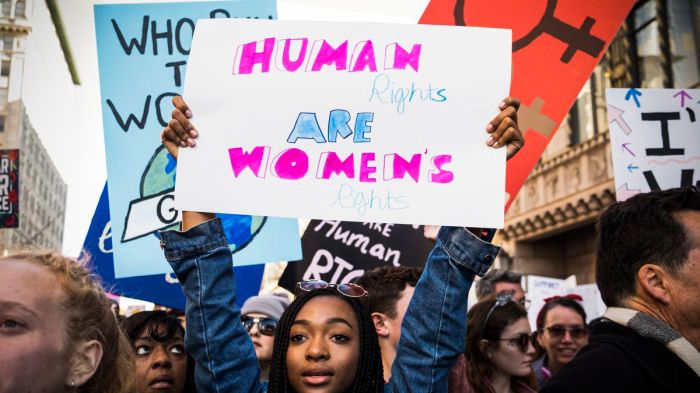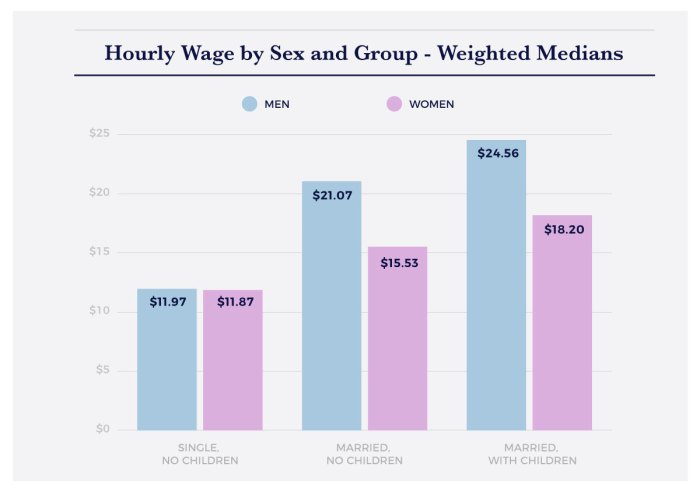Feminists argue that gender matters because it profoundly shapes our social, cultural, economic, political, and personal experiences. From the gender roles and stereotypes that shape our expectations to the disparities in healthcare and education, gender has a significant impact on our lives.
Understanding and addressing these gender-based inequalities is crucial for creating a more just and equitable society.
This comprehensive analysis explores the multifaceted ways in which gender matters, drawing on data, research, and examples to illustrate the arguments put forth by feminists.
Social and Cultural Factors
Gender roles and stereotypes profoundly shape social norms and expectations, influencing how individuals are perceived and treated based on their gender identity. These preconceived notions can limit opportunities and reinforce inequality, perpetuating a cycle of gender-based discrimination.
Gender Bias in Societal Institutions
- Education: Gender stereotypes can lead to unequal access to education, particularly in STEM fields, where women are often underrepresented.
- Workplace: Gender bias manifests in occupational segregation, wage gaps, and limited career advancement opportunities for women.
- Media: Media portrayals of women often perpetuate stereotypes, objectify women, and reinforce gendered power dynamics.
Intersectionality
Intersectionality acknowledges that gender inequality intersects with other forms of discrimination, such as race, ethnicity, class, and sexual orientation. This intersectionality can compound the challenges faced by individuals who experience multiple forms of oppression.
Economic Disparities

Gender disparities in the economic realm are a significant manifestation of gender inequality. Women continue to face wage gaps and occupational segregation, limiting their economic well-being and financial independence.
Gender Wage Gaps
- Globally, women earn on average 24% less than men for the same work.
- In the United States, women earn 82 cents for every dollar earned by men.
- The gender wage gap persists across various industries and occupations.
Occupational Segregation
Women are disproportionately represented in low-paying, low-status occupations. This segregation limits their earning potential and career advancement opportunities.
Policies and Initiatives
- Equal Pay Act (1963): Prohibits wage discrimination based on gender.
- Paycheck Fairness Act (2009): Strengthens enforcement of equal pay laws.
- Paid Family and Medical Leave Act (1993): Provides unpaid, job-protected leave for family and medical reasons.
Health and Reproductive Rights: Feminists Argue That Gender Matters Because
Gender inequality has significant implications for women’s health and reproductive rights. Women face disparities in healthcare access, outcomes, and reproductive autonomy.
Gender Gap in Healthcare
- Women are more likely to experience chronic conditions, such as heart disease and cancer.
- Women receive less preventive care and are more likely to be misdiagnosed.
- Maternal mortality rates are higher in countries with limited access to healthcare.
Reproductive Rights
Reproductive rights, including access to contraception and abortion, are essential for women’s health and well-being. Restrictions on these rights can have severe consequences for women’s lives and families.
Gender-Based Violence
Gender-based violence is a widespread problem that has devastating physical and mental health consequences for women. Women are disproportionately affected by intimate partner violence, sexual assault, and human trafficking.
Political Representation and Leadership

Women are underrepresented in political leadership roles, limiting their voices and perspectives in decision-making. This underrepresentation perpetuates gender inequality and hinders progress on issues affecting women.
Underrepresentation of Women
- Globally, women hold only 26% of parliamentary seats.
- In the United States, women make up just 25% of the House of Representatives and 24% of the Senate.
- Women of color and LGBTQ+ women are even more underrepresented.
Barriers to Political Participation
- Gender stereotypes and biases
- Lack of funding and support
- Family responsibilities and caregiving
Importance of Women’s Representation
Women’s voices and perspectives are essential for inclusive and effective decision-making. Women bring diverse experiences and expertise to political leadership, leading to better outcomes for all.
Education and Empowerment

Education plays a crucial role in empowering women and breaking down gender stereotypes. Access to education equips women with the knowledge, skills, and confidence to succeed in all aspects of life.
Gender Disparities in Education
- Girls are more likely to drop out of school than boys, especially in developing countries.
- Women are underrepresented in STEM fields at all levels of education.
- Gender stereotypes and biases can discourage girls from pursuing certain subjects and careers.
Role of Education in Empowerment
Education empowers women by:
- Increasing their economic opportunities
- Improving their health and well-being
- Developing their leadership skills
- Breaking down gender stereotypes
Programs and Initiatives, Feminists argue that gender matters because
- Girls Who Code: A nonprofit organization that provides computer science education to girls.
- Malala Fund: A non-profit organization that advocates for girls’ education around the world.
- HeForShe: A United Nations campaign that engages men and boys in promoting gender equality.
Media and Cultural Representation

Media and cultural representations play a significant role in shaping perceptions and expectations about gender. The portrayal of women in media can perpetuate stereotypes, objectify women, and reinforce gendered power dynamics.
Impact of Media Portrayals
- Stereotypical portrayals of women can reinforce gender biases and limit women’s aspirations.
- Objectification of women in media can lead to violence against women and perpetuate harmful beauty standards.
- Positive representations of women can challenge stereotypes and promote gender equality.
Examples of Media Representation
- Positive: “Wonder Woman” (2017) portrays a strong and independent female superhero.
- Negative: “Fifty Shades of Grey” (2015) perpetuates stereotypes of women as submissive and masochistic.
- Balanced: “Orange Is the New Black” (2013-2019) features a diverse cast of female characters with complex and multifaceted personalities.
Quick FAQs
Why do feminists argue that gender matters?
Feminists argue that gender matters because it significantly influences our social, cultural, economic, political, and personal experiences, leading to inequalities and discrimination based on gender.
What are some examples of how gender matters in society?
Gender roles and stereotypes shape our expectations, leading to occupational segregation, wage gaps, and underrepresentation of women in leadership positions. Gender also impacts healthcare access, reproductive rights, and the prevalence of gender-based violence.
How can we address gender-based inequalities?
Addressing gender-based inequalities requires a multifaceted approach, including policies and initiatives aimed at reducing economic disparities, improving healthcare access, promoting education and empowerment, and challenging harmful media representations and gender stereotypes.